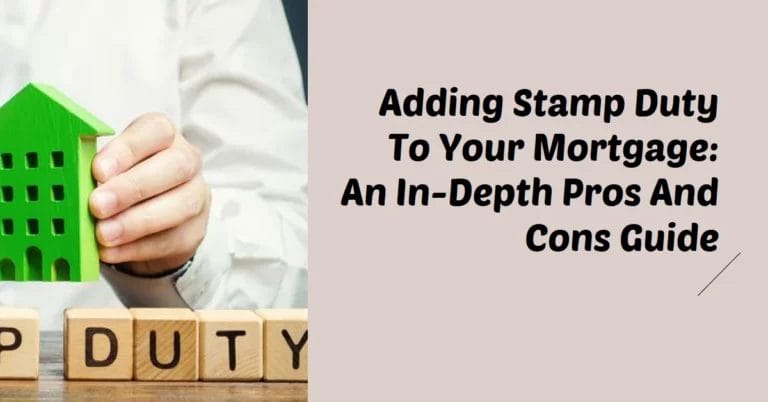How Reliable Is A Mortgage In Principle?
Looking to buy a property in the UK? You’ll probably need to get a mortgage in principle first.
A mortgage in principle gives you an idea of what you can borrow. But don’t take it as a guaranteed mortgage offer.
Here’s what you really need to know about mortgages in principle:
- How to get one and what’s involved.
- How reliable they actually are.
- Potential pitfalls to watch out for.
Use a mortgage in principle as a helpful checkpoint. But don’t depend on it too much when house hunting.
Let’s take a closer look at mortgages in principle so you know how they really work.
What is a mortgage in principle?
A mortgage in principle is a lender saying “We’re willing to lend you X amount.”
It means they’ll likely lend you money based on the details you gave. But it ain’t a done deal yet.
Getting one shows sellers you’re a serious buyer who can probably get a mortgage. Even though you’ve not gone through the full application.
But don’t go assuming a mortgage in principle guarantees you’ll get the dosh. The lender still has to do their checks.
It just gives an idea of what you can borrow. So you know what budget to look at when house hunting.
But don’t go thinking a mortgage in principle guarantees you a loan. It’s just a rough decision based on the info you gave.
It’s different from an agreement in principle too. That shows what you could borrow for a certain property.
Let’s break down mortgage in principles so you know what’s what. And whether to bank on it when house hunting or not.
How reliable is a mortgage in principle?

A mortgage in principle is only as good as the details you gave your lender or broker. Since there’s often no credit check, it just indicates what they might lend based on your current situation. It ain’t a concrete promise of a future mortgage.
The decision depends on a few bits of info:
- Your income
- Rough estimates of your monthly spending
- Your savings amount
- Your planned deposit amount
- Rough property value you want to buy
- Maybe a soft credit check (not with all lenders)
So the approval is tied to the circumstances you outlined. Anything different could change the decision later.
A mortgage in principle shows you’re probably able to borrow. But until full checks are done, nothing’s guaranteed.
Why isn’t a mortgage agreement in principle a guarantee of a mortgage offer?
When you get a mortgage in principle, there are no in-depth checks yet. It also ain’t tied to any specific property.
The lender will want to properly assess any property and your full mortgage application later. That’s when problems could crop up that make them withdraw their initial agreement.
Here’s what could scupper your offer:
- Failing more mortgage availability checks.
- Your credit score goes downhill.
- Needing a larger mortgage than first agreed.
- Employment changes like going temporary.
- Buying a property with non-standard construction.
- Being self-employed and unable to prove income.
- Issues with your UK residence status.
- Other big financial changes.
- Fibbing on your initial application.
- Having a County Court Judgement (CCJ).
So while a mortgage in principle suggests you’re likely right to borrow, it doesn’t guarantee a future loan. The full mortgage application is where your offer could go pear-shaped.
How does an MIP stack up against an agreement in principle?

While a mortgage in principle shows your potential borrowing power, an agreement in principle (AIP) goes further.
An AIP gives a better idea of how you can afford a specific property. It also shows sellers you’re serious about buying.
An AIP asks for the same financial info as a full mortgage application. So it indicates what mortgage amount you could get.
But an AIP can still be withdrawn like a mortgage in principle. Getting one doesn’t guarantee a lender will offer that amount.
When applying for a mortgage, an AIP carries more weight than an MIP. But neither equals a final offer from a mortgage lender or mortgage broker.
The difference is that MIPs give a rough estimate, while AIPs are property-specific. However, both depend on passing full checks later.
How long does a mortgage in principle last?
There’s no expiry on a mortgage in principle. But the amount it says you can borrow is based on your situation when applying. So changes could make it unreliable.
If your circumstances shift, just get a new mortgage in principle. Usually, only a soft credit check is needed (if any).
One note on credit checks – some brokers and lenders call an “agreement in principle” a “mortgage in principle.” Since an AIP looks at your finances more closely, it may involve a hard credit check. Too many of those can harm your credit rating and mortgage chances later.
So while a mortgage in principle doesn’t expire, it only reflects your situation at the time. Major life changes mean getting a new one to keep your borrowing amount realistic when applying for a formal mortgage.
How do I get a mortgage in principle?
Getting a mortgage in principle is similar to a normal mortgage application process:
- Contact lenders or use online tools: Reach out to lenders directly or use comparison sites to find deals and request an MIP. Brokers can also locate suitable options.
- Initial application: Share basic details like income, addresses, job, and commitments. This helps lenders estimate what they may offer.
- Soft credit check: The lender does a soft credit search to evaluate your financial history and lending risk.
- Affordability assessment: The lender analyses your income, outgoings, and documents like bank statements to determine what you can borrow.
- Get the mortgage in principle: If you meet the criteria, the lender provides a mortgage in principle document. This outlines an approximate amount they’re willing to lend based on the details provided. It’s not a binding promise but gives an initial decision.
So by providing key information, you can get a mortgage in principle without a full application. It offers a ballpark figure to guide your property search.
Should you get a mortgage in principle? And where do you get one?
Getting a mortgage in principle is definitely a good idea – especially early in your property search. Just be honest and detailed in your application. Also, watch for changes that could affect it, and know it’s not a guaranteed future mortgage.
The best part is it’s usually free and often doesn’t need a credit search. So it won’t show on your credit file or do hard searches that could hurt your credit rating later when applying for an actual mortgage.
Having a mortgage in principle helps guide your property hunt within your budget. Just be sure to get a new one if your situation changes significantly.
Speak to a mortgage broker
As expert mortgage brokers, we provide invaluable advice when you’re seeking a home loan. With extensive knowledge of lenders’ credit history requirements and available mortgage products, we guide you in improving any credit issues and matching you with appropriate lenders.
Our tailored mortgage advice considers your unique financial situation regarding the deposit, income, existing debts, and credit score. Accessing mortgage deals you may not find yourself, we negotiate the best terms on your behalf.
Whether you’re a first-time buyer, moving home, remortgaging, or releasing equity, we optimise your chances of approval at competitive rates. Our role entails demystifying the process whilst securing your ideal mortgage. With decades of combined experience, we offer personalised support so you can borrow with confidence.
Get in touch to discover how our mortgage expertise can help you purchase your next home.






